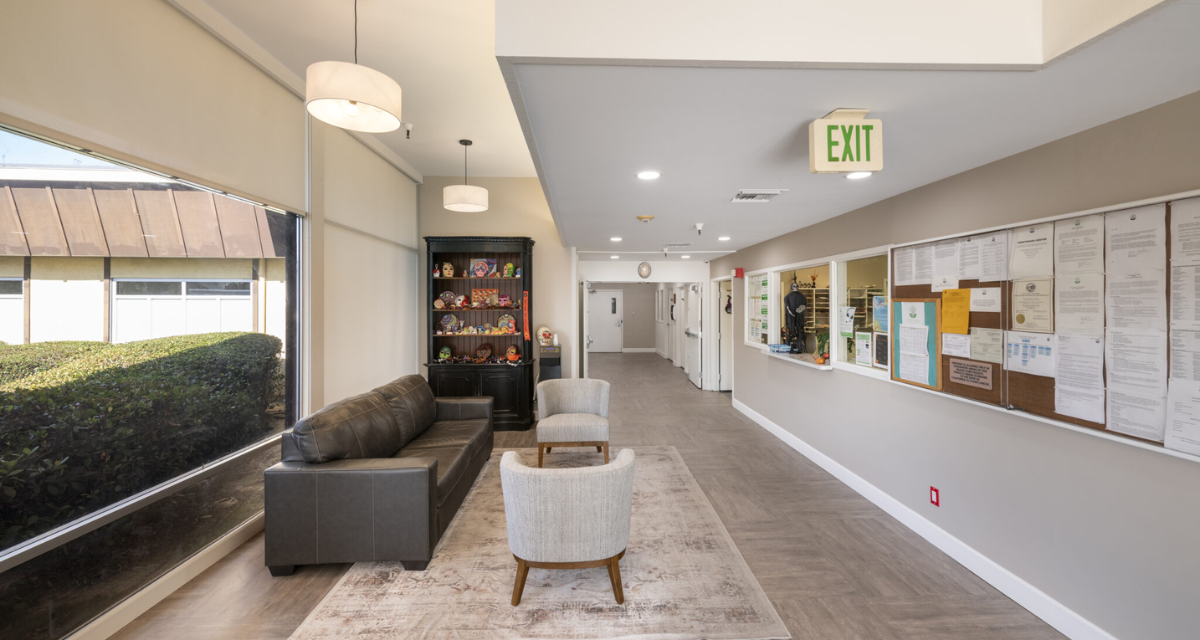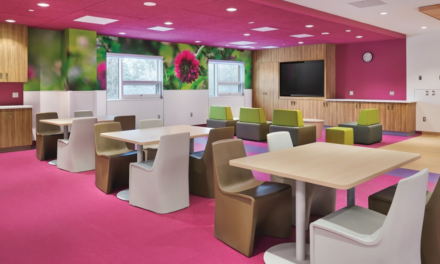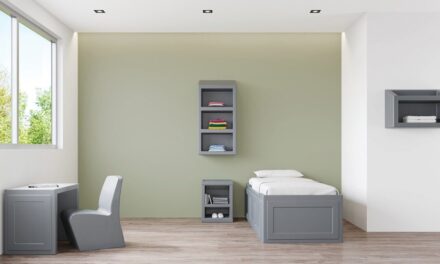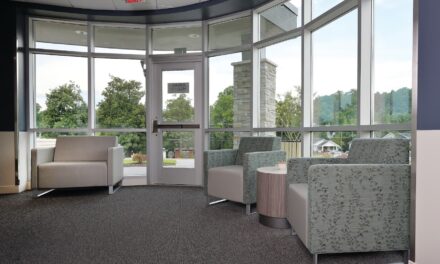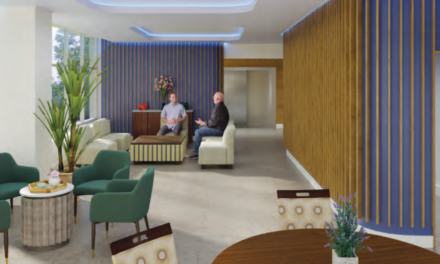The rising demand for behavioral health services is pushing facilities to grow quickly—but new construction isn’t always feasible. Between budget limitations, staffing shortages, and urgent community needs, healthcare providers are seeking faster, smarter ways to expand capacity. Enter adaptive reuse—a strategic approach that’s transforming underused spaces into modern, therapeutic behavioral health environments.
In 2025 and beyond, adaptive reuse is helping providers deliver quality care without starting from scratch. When paired with trauma-informed design and tailored product solutions, it becomes a powerful tool to improve outcomes, safety, and long-term facility performance.
What is adaptive reuse in behavioral health?
Adaptive reuse refers to repurposing an existing building—such as an office, hotel, or hospital wing—for a new use, like a behavioral health facility. For organizations facing rising patient volumes, it’s an efficient alternative to ground-up construction.
Adaptive reuse enables:
- Faster time to occupancy
- Lower construction and development costs
- Retention of historical or community-valued structures
- Improved sustainability and resource efficiency
As seen in many adaptive reuse projects, formerly underutilized real estate can become fully compliant, healing-focused environments that support a range of behavioral health care levels.
Designing for behavioral health in reused spaces
While repurposing a building can speed up the process, it must be done with precision. Today’s behavioral health environments require thoughtful planning to meet clinical, safety, and emotional needs. That includes aligning with JCAHO behavioral health standards and incorporating elements from a modern behavioral health design guide.
Key features for successful adaptive reuse include:
- Zoning for acuity-based care levels
- Safe lines of sight for staff supervision
- Private and group therapy rooms
- Durable, ligature-resistant finishes
- Noise mitigation and natural light integration
Facilities are also prioritizing trauma informed design principles, ensuring that the environment reduces triggers and promotes healing at every level. Direct Supply supports this work with a comprehensive approach to both space planning and product sourcing.
Behavioral health products that power smart, safe reuse
Designing reused buildings for behavioral health care involves more than just blueprints—it requires intentional product selection across every department. Here’s how specific behavioral health product solutions from Direct Supply can be leveraged in adaptive reuse projects:
Mattresses & bedding: balancing safety and comfort
In behavioral health environments, therapeutic mattresses and behavioral health beds are critical. Direct Supply offers ligature resistant and sealed seam bedding options that support infection control while creating a comfortable, non-institutional feel.
- Minimize ligature risks
- Reduce fluid absorption and promote hygiene
- Promote patient dignity and restfulness
Appliances & cooking equipment: supporting recovery through routine
Equip reused spaces with appropriate appliances and cooking equipment for streamlined back of house operations. Durable, easy-to-clean equipment is essential for behavioral health settings.
- Energy-efficient options to reduce operational costs
- Commercial grade equipment to enhance operational effectiveness
Housekeeping, floor care & janitorial supplies: preserving the therapeutic environment
A clean, well-maintained space isn’t just about appearance—it directly impacts infection control, resident comfort, and safety. For adaptive reuse facilities, investing in modern floor care systems and janitorial supplies supports long-term viability and consistent quality.
- Quiet, low-disruption cleaning tools
- Disinfectants and surface-safe products
- Scalable solutions for different care areas
Furniture that adapts with you
When repurposing a building, flexibility in furnishing is essential. Facilities must accommodate varying levels of care while maintaining a homelike atmosphere. Direct Supply’s behavioral health furniture portfolio is built for resilience and resident dignity.
Whether outfitting a psychiatric hospital room or a small group living area, Direct Supply offers:
- Therapeutic furniture with residential aesthetics and institutional durability
- Mental health furniture designed to meet ligature resistant and safety compliance
- Modular options to support evolving census and clinical needs
A trauma-informed design framework for reused spaces
In adaptive reuse, applying a trauma informed design checklist ensures that the new environment fosters recovery and reduces distress. Even if the building wasn’t originally built for behavioral health, thoughtful retrofits can create safe, healing spaces.
Key design strategies include:
- Soothing, natural colors and textures
- Ample daylight and views of nature
- Flex spaces for self-regulation and decompression
- Noise control through ceiling and wall treatments
With Direct Supply’s planning and procurement expertise, reused spaces can achieve full alignment with trauma informed environments and levels of care in mental health services.
The future: revolutionizing behavioral health facility expansion
Adaptive reuse is no longer a niche strategy—it’s a cornerstone of behavioral health construction. As patient needs evolve and care models diversify, flexible, scalable environments are more important than ever.
Direct Supply is uniquely positioned to help you:
- Assess a building’s potential for reuse
- Plan a compliant, therapeutic design
- Procure behavioral health products tailored to safety, efficiency, and healing
- Implement facility management tools for long-term performance
With the right partner, adaptive reuse becomes more than a way to save time—it becomes a way to deliver better care. Discover Direct Supply’s Behavioral Health Solutions today.
